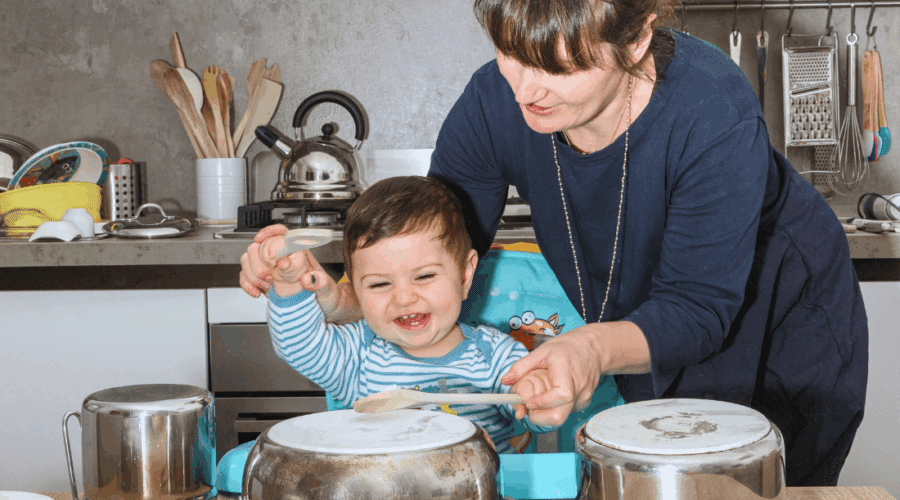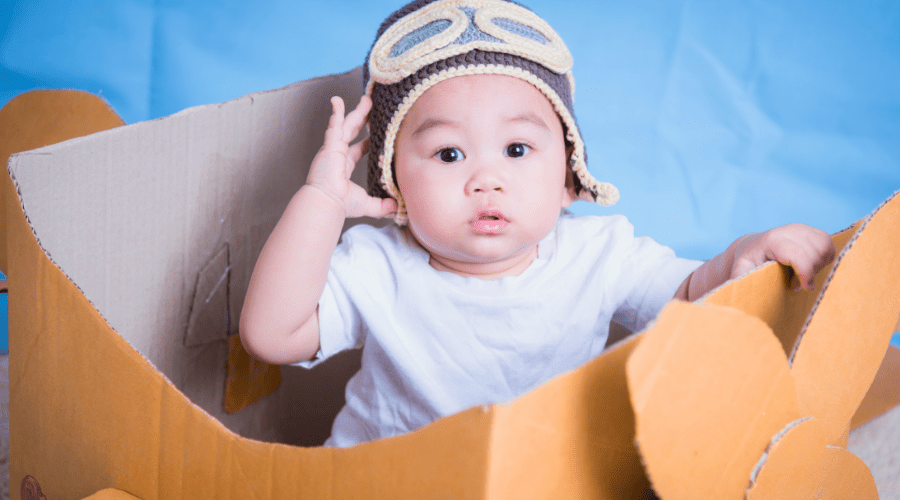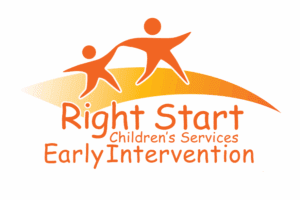The first few years of life are a vital time for early child development and brain growth. Research indicates that this is when behavior, language, and cognitive skills start to develop. During these early years, a child’s brain builds millions of neural connections every second! These connections are highly influenced by touch, interaction, and play.
Many parents and caregivers assume their baby or toddler needs specialized toys to learn. In reality, the best tools for early child development are already in your home! With a little creativity, everyday household items can become powerful opportunities for learning through play.
Continue reading to discover five simple household items that can help nurture your little one’s curiosity, problem-solving skills, and more!

1. Measuring Cups
Who knew measuring cups could help your baby’s brain grow? These simple kitchen tools can become effective opportunities for learning through play. They support early child development skills such as problem-solving, spatial awareness, and coordination.
How to Use:
For babies (6-12 months), let them scoop, fill, and pour water or dry cereal. This hands-on play helps enhance grip strength. It also introduces children to cause and effect. Cause and effect helps them understand that their actions have consequences.
For toddlers (1-3 years), measuring cups can serve as early math tools. Have them count scoops, compare sizes, or pour from one cup to another. Ask questions like “Which cup has more?” to spark conversation.
These activities also support early child development by strengthening fine motor skills and curiosity!
2. Pots, Pans, and Wooden Spoons
Babies and toddlers are naturally attracted to sounds and rhythm. This makes pots, pans, and wooden utensils perfect exploration tools in early child development! Musical play supports coordination, auditory development, and cognitive skills.
How to Use:
For babies, tap gentle rhythms on a table or wall. Let them watch and move their hands along with the beat. This introduces early rhythm and listening skills.
For toddlers, create a simple drum set using metal pots, pans, and wooden spoons. Encourage imitation, rhythm games, and making music with different tempos.
These activities strengthen memory, coordination, and creativity.

3. Empty Water Bottles and Jars
Babies and toddlers benefit from sensory activities that support early child development. Empty water bottles and jars can become fun tools for exploration and concentration.
How to Use:
For babies, fill clear bottles with colorful items such as pom-pom balls or rice. Let them observe how the items move when you turn the bottles.
For toddlers, make “discovery bottles”. Fill them with glitter, beads, or colored water. Secure lids tightly and allow them to explore safely. Talk about what’s inside the bottles. For example, saying “It’s sparkly!” or “Look at how it’s moving!”.
These activities encourage learning through play by fostering observation, sensory awareness, and language skills.
4. Cardboard Boxes
A simple cardboard box can be transformed into an imaginative playground that supports early child development. They inspire children to move, explore! Cardboard boxes also allow toddlers to invent new ways to interact with their environment.
How to Use:
For babies, large boxes can become crawling tunnels. Cut holes so your baby can peek through. Engage visual and tactile senses by adding bright colors.
For toddlers, boxes can become forts, cars, airplanes, or playhouses. Give toddlers the opportunity for self-expression by encouraging them to add decorations to their creations. For instance, drawings, stickers, or paper decorations. Be sure to engage in conversation, asking questions like “Where’s the door?” to build on language and communication skills.
These playful activities also support early child development in areas of creativity, coordination, and problem-solving.

5. Books and Magazines
Reading is one of the most effective ways to support early child development. Reading supports cognitive, language, and social-emotional growth. Interacting with books and pictures helps build vocabulary, comprehension, and emotional understanding.
How to Use:
For babies, choose board books with textures or colorful images. Describe what they see on the pages and encourage touching and page turning to strengthen motor skills.
For toddlers, let them turn pages, name objects, and participate in storytelling. Family photos or magazines can also spark conversation!
Storytime activities help support attention, literacy, and communication skills.
Early Support with Right Start Children’s Services
Even with these activities, some babies and toddlers may need additional support to reach key early child development milestones. That’s where Early Intervention Services like Right Start can step in!
Right Start Children’s Services was established in 2005 to provide Early Intervention and Pediatric Therapy to children in Pennsylvania. Service areas include Berks, Lebanon, Lehigh, Montgomery, Chester, and Schuylkill Counties. Individualized guided therapy for speech, learning, and visual-motor skills all work together to help your child develop in a healthy and balanced way.
With our team of Occupational Therapists, Physical Therapists, Speech-Language Pathologists, and Special Instructors, we offer a full range of services for infants, toddlers, and children, including:
- Early Intervention Occupational Therapy
- Early Intervention Special Instruction/Behavior Support Therapy
- Early Intervention Speech Therapy
- Early Intervention Physical Therapy
Each of these services occur in the child’s natural environment and are designed to meet the developmental needs of the child and the needs of the family. Our compassionate team will work to enhance early child development in areas such as physical motor skills, communication, cognitive development, and more.
Right Start Children’s Services focuses on serving as a resource and support for families. We are here for you if you have any questions or concerns about your child’s development.
Contact us at (484) 529-9663 or info@rightstartservices.com

Leave a Reply